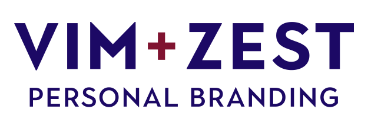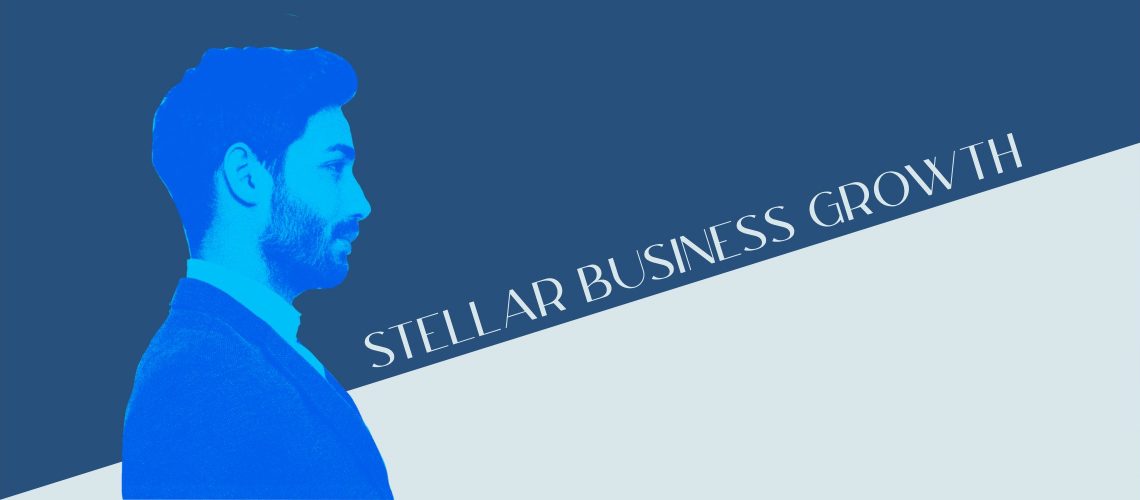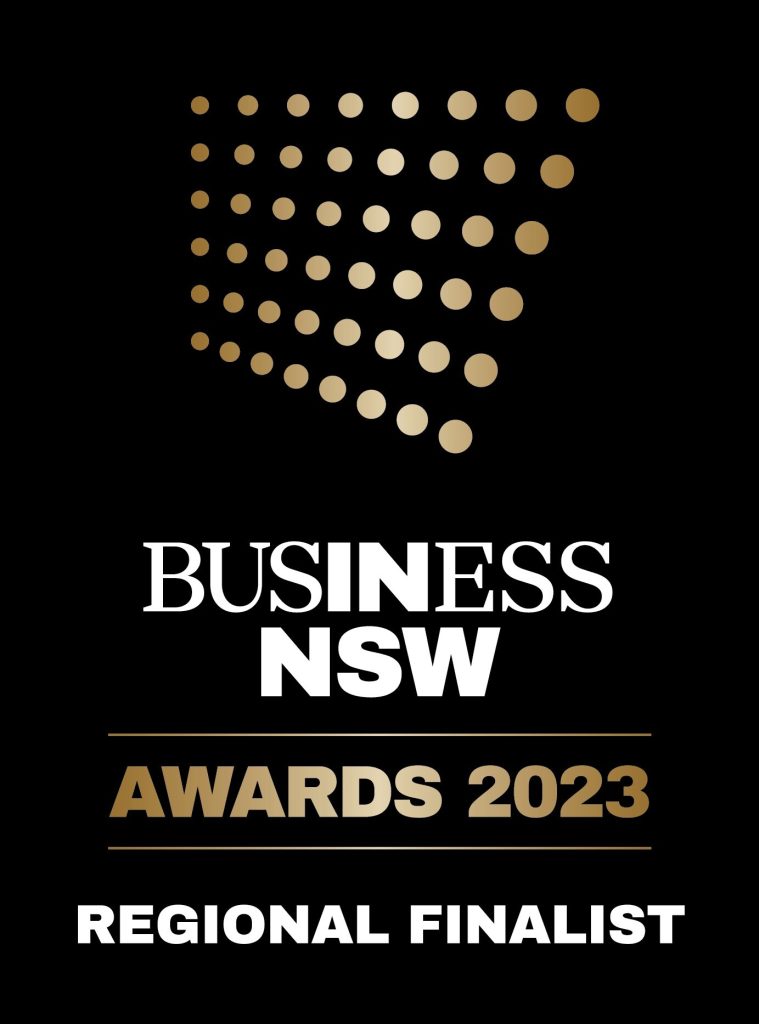What is the secret ingredient that fast-tracks entrepreneurial growth? Personal Branding for Entrepreneurs when done well, exceeds competitor growth multiple times over.
Strategically leveraging a Personal Brand drives organisational business growth.
In today’s entrepreneurial landscape, your visibility as a leader is necessary. Consumers are overloaded by information and impersonal automated transactions.
Attention is the new currency. Gaining cut-through on social and online media is one of the biggest challenges for brands today.
Strategic Personal Branding compounds business growth. It makes you visible as an industry leader in a way that allows customers to feel more connected.
Why?
It’s simple – people like to buy from people they know and trust.
Brands Grow Faster with a Human Face Leading Them
Today humanising organisational brands to build engagement and trust has been one of the most significant marketing trends worldwide. It’s the result of consumers’ desire to connect with and build trust in brands before making a purchase decision.
By using Personal Branding to be the face of an organisational brand, you actively build trust at an amplified rate, which supports the consumer’s familiarisation with the brand through their decision making journey.
We’ve all seen good examples of Personal Branding These are the entrepreneurs whom you know what they stand for and why they do what they do.
So, if Personal Branding is such a potent growth tactic for entrepreneurs, why aren’t more people doing it?
Let’s Start with Defining Personal Branding First
Personal Branding is the process of identifying and defining who you are and what makes you unique. Personal Branding assists you to communicate why you do what you do, what you stand for in order to create and grow relationships.
When done well, Personal Branding is authentic and based upon clear storytelling and genuine messaging.
Personal Branding is grounded in the refinement of key leadership communications skills that grow confident. Personal Branding enables a leader to master storytelling – the most important way to grow an audience – in a compelling way.
If You’re Online, You Have a Personal Brand
Whether you like it or not, in today’s world you are who Google says you are. Even if you think you don’t have a Personal Brand because you don’t actively engage with your online profile and grow it, you do actually have a Personal Brand.
Your Personal Brand is the culmination of everything that is on your social media, speaking engagements, podcasts, blogs and media reports as well as what your LinkedIn articles, posts and profile say about you.
First Impressions Count. Yet for Most, it’s Not Good.
Did you know that of the 75% of American adults who Google themselves, nearly half say the results aren’t positive?
So, take a moment to consider, what does Google say about you, if you looked online today?*
Personal Branding is so important for entrepreneurs. It’s one of the smartest business communications strategies there are. So why aren’t more entrepreneurs doing it right? (Hint: there’s plenty of opportunity for you!)
The Brand Spiral: How to Increase Business Growth for Entrepreneurs
For an entrepreneur, Personal Branding can accelerate their business organisation success at an exponential rate, if it’s done well.
In any ideal entrepreneurial growth strategy, Personal Branding should be integrated with other branding and marketing initiatives for organisational growth. Because it’s such a powerful audience builder, Personal Branding will increase market presence and opportunities to grow target markets attention, trust and loyalty through engaging with interlinked brands – a leader’s Personal Brand and their organisational and/or product/service brands.
When executed well, this potent connection is an infinite upward spiral movement of brand growth. It’s called the Brand Spiral.
Values are the Building Blocks of Trust
Personal Branding gives a faceless organisation, product and/or service a powerful vehicle to build audience trust. More than that, because it humanises an organisation, it imbues the organisation with a strong articulation of values.
People create a connection with people who lead because they identify with the leader’s values.
Our values define us. Our values are at the core of our identity, of who we are. So when we experience a leader who can show that they share our values by visibly articulating them, we feel that we relate to them. We also expect they will understand us. This builds trust. Trust is the essential foundation of any relationship. Trust in brands grows whether or not a consumer has actually met the visible front face, the leader of an organisation, or not.
1. Silencing Imposter Syndrome
If all the research and statistics demonstrate that Personal Branding is such a potent business growth model for entrepreneurs then why aren’t more people doing it?
Most people have a clear-cut case of imposter syndrome, which means they’re afraid that if they reveal themself in public, they will be exposed as a fraud.
“In my 29 years of working in a media capacity with leaders, celebrities and masters in their fields from around the world, I have been shown, either directly or indirectly, how ubiquitous Imposter Syndrome is.
Imposter Syndrome is a fear of being revealed in public and not living up to what we think people’s perceptions of us are.
The irony is that we all have this fear, in some way. The sooner we name it, accept that it’s there and learn how to silence our inner fraudster, we can move on and communicate with authentic power. If we don’t, we risk remaining invisible.” – Trudy Johnston, Founder of Vim + Zest
The fear is undeniably genuine. Putting your trust in someone to manage your most valuable professional asset – your reputation – is big.
So How is Imposter Syndrome Overcome?
If you look at some of the strongest leaders of past and present, such as Nelson Mandela, Gandhi, Mother Teresa and Michelle Obama, all of them have had people who like them, love them, dislike them and dare we say it, hate them.
It’s stating the obvious, but we cannot control others’ perceptions of who we are. A more helpful way of dealing with Imposter Syndrome is to consider that we might have to get comfortable with being uncomfortable with the haters.
Don’t Try to Cure Imposter Syndrome
What if we contemplated that we didn’t have to actually ‘get over’ Imposter Syndrome, but find a way to silence it instead. Not cure it, not deny it, not disavow it, but to find a way to meet it with honesty, humility, compassion, care and understanding of ourselves. Perhaps we could consider that ‘silencing Imposter Syndrome’ was a little more do-able? Just a little more achievable than trying to get rid of the Inner Fraudster all together?
A More Helpful Approach
The first step to silencing Imposter Syndrome is to understand and appreciate that you’ll never please everyone. It’s guaranteed that some people will not like or love what you have to say. A more helpful approach is to spend your energy finding your particular audience and speaking to the people who are most interested in your message – and values.
Leading and communicating your values can often require a certain amount of vulnerability in communication. Vulnerability is scary for most people, however it’s vulnerability that is the key that builds genuine trust and underpins the quality of relationships that create repeat customers and loyal tribes.
The journey of Personal Branding entails that as a leader, you learn and master leadership communication skills. Becoming more confident in how you present yourself verbally, online, in social media and visually, will naturally help you to meet and address some of the apprehension Imposter Syndrome creates.
In short, growing your leadership communication skills helps to silence your Fraudster.
Successful Personal Branding Allows You to:
- Identify your Personal Brand value proposition: your unique identifier which clearly articulates who you are and what it is that you offer to your audience.
- Grow your Thought Leadership with your subject matter expertise about the topics you are most passionate and confident in speaking about.
- Become a compelling, authentic storyteller, clear about the key messages you’re delivering and growing audience trust.
- Build tangible speaking and presentation skills that grow your online visibility.
Growing leadership communication skills builds confidence and clarity, which helps you meet and silence Imposter Syndrome.
Examples of How Leaders Deal with Imposter Syndrome
Here’s a secret about Imposter Syndrome. The more successful you get, the more Imposter Syndrome grows. This may come as a surprise to many, however top business leaders commonly cite this learning when speaking of how they address Imposter Syndrome.
Simon Sinek
English-American Author, inspirational speaker and champion of purposeful living, Simon Sinek, often speaks to huge audiences. Even though he has done so countless times he openly speaks about the feeling of dread before he goes on stage. The feeling of not belonging.
To overcome Imposter Syndrome, Simon reminds himself that he has already been vetted. There are event organisers who already believe he has value to offer. There are audience members who have purchased tickets to hear him speak.
Mike Cannon-Brookes
Australian billionaire business magnate, Mike Cannon-Brookes, knows Imposter Syndrome well. He speaks about experiencing it when represented Australia for the global Entrepreneur of the Year award. He sat next to another competitor who had 30,000 employees to his 70. Mike admitted to the competitor that he felt like he shouldn’t be there. The competitor said he felt the exact same way.
Mike addresses Imposter Syndrome by firstly acknowledging that that is what he’s experiencing and then approaching the situation from a place of gratitude rather than fear. Fear immobilises while gratitude propels us forward.
Michele Obama
Former First Lady of the USA, author and attorney, Michele Obama, has experienced a sense of not being good enough since a very young age, especially growing up with awareness that she was part of a minority. Despite her considerable success, she doubted herself constantly throughout her professional career.
She addresses Imposter Syndrome by acknowledging that it isn’t real, it’s ‘in her head’. She changed the way she spoke to herself and always ensures throughout her journey that she stops to acknowledge her achievements.
2. Mission-Centric Personal Branding: Activates Growth in Business
Personal Branding for entrepreneurs is the key to understanding how to grow your business by building visibility with credibility. When done well, building a genuine profile based on your values and your passion makes it attractive for customers.
Personal Branding is so potent for entrepreneurs because entrepreneurs typically create a business around something that they’re passionate about. Their business is a vehicle to live out a particular imperative or to achieve a vision or mission.
A genuine Personal Brand personifies an entrepreneur’s organisation, product or service, which ultimately makes them stand out from competitors in a way that is real, deep and inspires action.
3. Compound Growth in Business through the Brand Spiral
As mentioned previously, Personal Branding creates an upward spiral of awareness for both your personal and organisational brands. It’s called the Brand Spiral.
It works by using multiple channels to communicate both product and personal messages to increase exposure and build relationships exponentially faster than traditional models that don’t employ Personal Branding.
By actively linking your personal and organisational brands you create a symbiotic relationship of amplification.
“The Brand Spiral movement is potent. It’s a strategy that compounds the power of an organisational brand by strategically using a leader’s visible Personal Brand to build trust-based relationships, because the organisational brand is imbued with the values of the leader. The amplification and growth rate in a Brand Spiral is exponentially larger.
The more we build the authentic Personal Brand of an entrepreneur, the fast the brand of their organisation will grow. The greater we build the organisational brand, the more amplified the Personal Brand becomes. And so on.” – Trudy Johnston, Founder of Vim + Zest
Growing Your Business: How to Link Your Brands
1. Clear Messaging
The steps to creating strong, strategic and effective Personal Brand
for entrepreneurs begins with a deep understanding of your ‘why’.
Why do you do what you do? Why you do what you do is based on your values. Your values tend to remain constant. Many people will change ‘what’ they do in life, but their ‘why’ tends to remain consistent. Your ‘why’ tends to be perennial and it usually stems from a set of childhood inspiration, talents and skills that have been fulfilling.
Building Personal Brand DNA starts with a dive into understanding what you and your brand stand for, by asking ‘why’? first. What values do you hold? What makes you different from your competitors?
With this level of clarity in place, a Personal Brand statement becomes possible, which forms the foundations of the correct brand positioning and messaging. These will then inform the brand personality and tone of voice your content will have.
Tone of voice is how you uniquely communicate – authoritative, irreverent or humorous – with your audience. This will impact how your audience might feel after reading your words or hearing you speak?
2. Visual Identity
First impressions count. People buy with their eyes. In five seconds your audience will have decided to engage with you – or not.
Your visual content speaks very loudly to your audience. It tells them who you are and what is important to you. It helps them decide if they potentially hold the same values as you, and answer the important question: do they want to build a relationship with you or not?
Your Personal Brand identity has a signature visual look that visually both defines you as an individual, and helps you to become memorable. When done well, it will harmonise with your business brand in a way that increases consistency and congruence, as well as amplify brand recognition. Your visual style can also directly contrast to the look of your business brand to strong effect.
Visual elements include wardrobe styling, photography, video, website, logo, typography, colour palette and imagery.
Working with a professional stylist, make-up artist, videographer and photographer is an investment that pays for itself many times over. Aside from the obvious benefits of ensuring that a powerful, authentic and signature look is created, there is an undeniable confidence that comes when professionals are able to enhance and grow your visual identity in ways you might not have previously considered.
3. Audience-Centric Content
The entrepreneurs who truly harness Personal Branding’s power to grow their audience understand the importance of building their online presence by focusing on their audience – first.
Audiences are heterogenous, dynamic and composed of various sub-groups or segments. They have wants and needs which are usually different, often quite paradoxical and subject to rapid change. It takes dedicated research and strong listening to deepen understanding and have a lens that’s current.
Typically, entrepreneurs have multiple audience sectors. Internal audiences include their team members, volunteers and partners. External audiences include customers and potential customers, councils, government and other industry bodies.
The way you communicate with each different audience sector might be different. This includes different messaging and different channels.
The key to understanding your audience is to know the quantitative data – their demographics; as well as their attitudes and values which form their psychographic information (qualitative data); and their geographic information to fully understand their aspirations, motivations and pain points.
Knowing your audience well enables you to grow relationships of trust with them.
When Personal Branding Really Matters
When executed well Personal Branding is a sustainable marketing and communications strategy that grows both leaders’ and organisational brands in an ongoing and consistent manner.
However, there are three incidences arenas where Personal Branding undoubtedly excels in its ability to deliver tangible results.
1. Driving Online Traffic and Sales as a Primary Business Growth Strategy
“A lot of people think paid media is essential to business growth. This is not true. It’s not a sustainable business model to rely purely on paid media. Authentic Personal Branding, strategic SEO Content and a strong social media presence can significantly improve your ability to both drive online traffic to your website and convert to sales.”
– Kim Pink, Personal Branding Manager at Vim + Zest Personal Branding
Did you know that 92% of people trust recommendations from individuals, even if they don’t know them, over organisational brands?**
That’s where your Personal Brand comes in. A recommendation of a Personal Brand not only increases awareness of your service or product, but also improves the credibility of that recommendation increasing the opportunity of higher conversion rates.
2. The Customer Pathway to Purchase
Today’s consumers extensively research their purchase decisions. They view multiple websites and social media feeds, check online reviews and talk to their family and friends before making a purchase. Mapping this purchase journey informs why Personal Branding is perfect for entrepreneurs in both pre and post-launch phases.
The journey of Personal Branding is essentially building that trust that closes the gap for your potential consumers between knowing about your product or service and making that purchase decision.
Essentially what you’re doing is building a network. You’re establishing a relationship with people before they actually meet you, and come into contact with your product or service.
This is important because people make decisions very quickly in today’s market. When they already know and trust your organisation, you swing that decision pendulum in your direction.
3. Crisis Communications
A significant 87% of executives around the world rate reputation risk as more important or much more important than other strategic risks. Loss of good reputation impacts the financial bottom line. Forty-one percent stated that loss of revenue was the biggest impact on their business.***
In times of crisis there is a need for stability and empathy across all audiences – internal and external.
If entrepreneurs build an authentic Personal Brand then their communication should already have a platform that engenders trust and makes them relatable.
This allows the audience to feel that the entrepreneur is empathic or understands them.
Timeliness and communication through the right channels are key during a crisis situation, but just as important is communicating with authority, honesty, transparency and empathy.
Strong Personal Branding grounded in skilled communications enables a leader to have the ability to speak with gravitas and show a level of emotional intelligence with an audience to maintain and grow connection..
With that level of emotional intelligence, consumer trust can grow even stronger. It’s an invaluable resource in solving a crisis situation and preventing others from happening in the future.
Learn From Others’ Mistakes
For every successful Personal Branding entrepreneur, there are plenty who have failed. Yet their stories can teach us just as much as their triumphs. There are four key mistakes that entrepreneurs most commonly make.
1. Pretending Personal Branding Doesn’t Matter
Whether it comes from a lack of marketing knowledge or perhaps undiagnosed Imposter Syndrome, too many entrepreneurs never get their Personal Branding off the ground, because they simply underestimate its power.
There are two reasons this seriously hurts their business. The first is that the Brand Spiral movement is very potent. To ignore Personal Branding is to say no to a marketing resource that will multiply business growth rapidly.
The second reason is that every entrepreneur already has a Personal Brand. Most entrepreneurs just don’t manage it. So instead of helping them, it could be hindering them.
2. Presenting Yourself as Someone You’re Not
Authenticity is at the core of a well-crafted strategic Personal Brand. If your
Personal Brand isn’t authentic, the best-case scenario you can hope for is that your message is unclear, not consistent and therefore fails to inspire your audience to act.
The worst-case scenario is that you are publicly challenged for being dishonest, your current business suffers financial losses and your poor personal reputation follows you into any future endeavour you attempt to execute.
There are many examples where the market value of organisations plummets when there is CEO or Director level reputation damage.
The biggest misconception about Personal Branding is that you need to create a polished image that is made up of a persona that has little to no relationship to the real you. Being real is evident in how you present yourself, who you are, what you talk about, who you engage with and what you say ‘yes’ to.
Audiences want to connect with authenticity, not perfection, in leaders.
3. Lack of Audience Awareness
It is one thing to understand the demographics of your audience. It is entirely another to understand what powers their motivations. What do they base their decisions on?
Can you or your product help alleviate something that they worry about? Can you or your product help them get more of something that is important to them?
Get into the mind of your audience and speak honestly and with vulnerability about things that matter. Add value to their lives.
4. Underestimating the Time and Resources Required to Develop a Brand
Personal branding requires time and resources. Doing it well means operating with clarity, strategy and purpose.
The feeling of overwhelm surrounding the robust and often complex nature of developing a brand is a barrier for too many of us. We’re too often faced with the knowledge that we know we should be igniting our Personal Brand but feel we don’t have the time or resources.
Effective Personal Branding has to work for you. Using a strategic and data-informed approach, planning and batching content creation and scheduling eliminates overwhelm and puts you firmly in control of your online reputation.
The act of Personal Branding is empowering.
Personal Branding for Entrepreneurs – Compound Growth
The irrefutable rapid-growth ability of authentic Personal Branding is available to any entrepreneur seeking to develop genuine, trust-based audience relationships
that convert to sales. Entrepreneurs can learn a lot from others who have built empires through Personal Branding and even those who burnt them down. Some key learnings:
- Build an authentic Personal Brand that you can link with your business brand with you as the face of your enterprise to accelerate business growth.
- Understand that your Personal Brand grows the crucial networks with your audience before they meet you so your investment in time and resources is a key business builder.
- Take heart. Know that just about everyone has Imposter Syndrome. Find your way to acknowledge and accept that no matter what you say, you might attract the ‘haters’. Make your commitment to your journey to build a sustainable, long-term brand far greater than your fear.
People actively seek empathetic and genuine connections with people, not anonymous brands. So make your Personal Brand genuine, authentic and attractive.
Communicate with gravitas and emotional intelligence. Have authority with empathy.
Essentially, Personal Branding is about building connections and relationships through trust. It’s the perfect tool for entrepreneurs wanting to launch or grow their business. And now is the perfect time.
You might be interested in:
Vim + Zest Personal Branding is a specialist Branding and Marketing agency for people and organisations that matter. We help leaders to create impact to build a better world.
*https://www.entrepreneur.com/article/280371
**https://www.nielsen.com/us/en/insights/report/2018/cmo-report-2018-digital-media-roi-measurement-omnichannel-marketing-technology/
*** https://www.entrepreneur.com/article/280371






